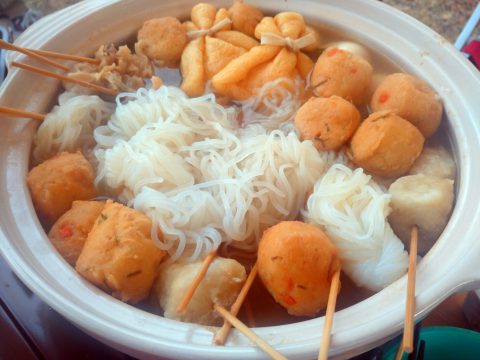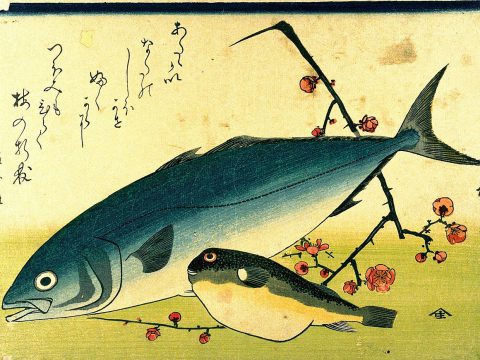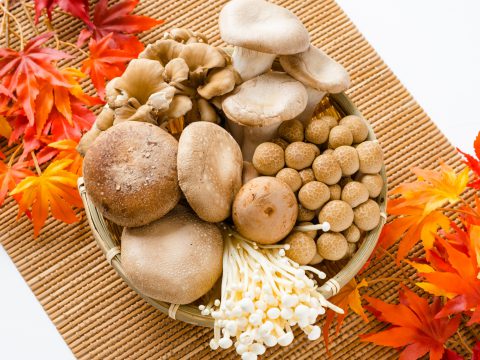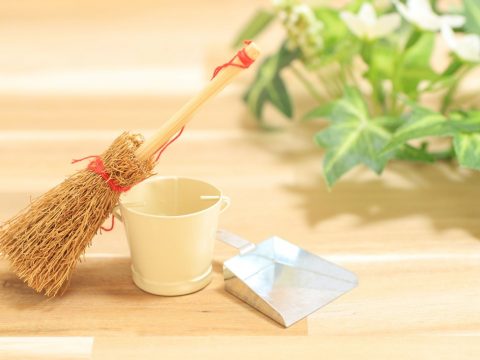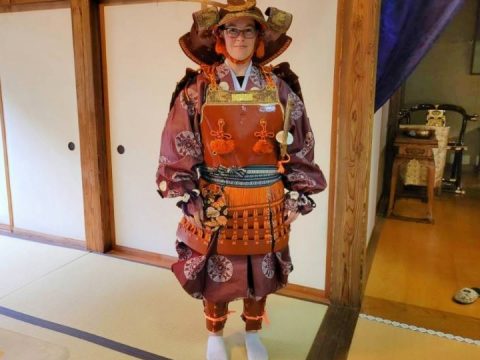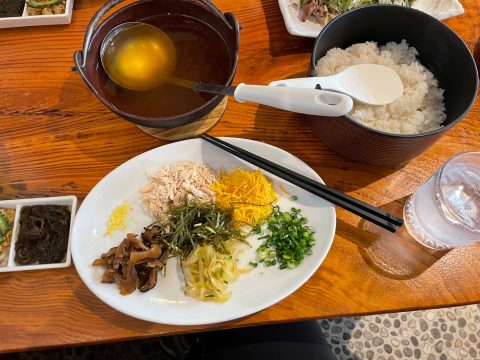End-of-the-year greetings and manners
WORK’IN JAPAN
05.12.2022
As the year is slowly ending, perhaps your workplace is becoming busy preparing for the New Years’ holidays, also known as Oshogatsu (お正月). The holidays span from December 29th to January 3rd, and depending on the year, if it hits the weekends just right, it can be a ten-day holiday!
Here are some greetings and phrases one would say during this time of year to colleagues, clients, and friends. As needed, adjust the formality depending on your relationship with the person. Make sure to bow at the end of the phrase. It’s not uncommon for the other person to reciprocate with the same phrase.
End of the year
You can say the following phrases from mid to late December when you last see your colleagues, clients, or friends.
Thank you for everything this past year (formal)
今年も色々お世話になりました (kotoshimo iroiro osewani narimashita)
Thank you for all your support this past year (formal)
一年間大変お世話になりました (ichinenkan taihen osewani narimashita)
Looking forward to working with you again next year (formal)
来年も一緒にお仕事をさせていただけるのを楽しみにしております(rainenmo issho ni oshigoto o sasete itadakeruno o tanoshimi ni shite orimasu)
I appreciate your continued support for next year (formal)
Rainenmo yoroshiku onegai itashimasu (来年もよろしくお願いいたします)
I wish you a Happy New Year (formal)
Yoi otoshi wo omukae kudasai (よいお年をお迎えください)
Yoi otoshi wo osugoshi kudasai (よいお年をお過ごしください)
I wish you a Happy New Year (casual)
Yoi otoshi wo! (よいお年を!)

Beginning of the year
You can say the following phrases from January 1st to the 7th when the New Year period ends.
Happy New Year. Thank you for all your support for this year in advance (formal)
明けましておめでとうございます。今年もよろしくお願いいたします。(Akemashite omedetou gozaimasu. Kotoshi mo yoroshiku onegai itashimasu.)
Happy New Year. Thank you for all your support for this year in advance (casual)
明けましておめでとう。今年もよろしく。(Akemashite omedetou. Kotoshi mo yoroshiku.)
I wish you all the best for the new year (formal)
謹んで新年のお喜びを申し上げます (Tsutsushinde shinnen no oyorokobi o moushiagemasu)
You may see these phrases written on New Years postcards (nengajyo 年賀状), posters, and decorations, but they are only written and not used as greetings.
謹賀新年 (Kinga Shinnen) – Happy New Year
恭賀新年 (Kyouga Shinnen) – Congratulations on the New Year
賀正 (Gashou) – Celebrating the New Year
迎春 (Geishun) – Welcoming the New Year

Kayoko Hirata Paku
Kayoko Hirata Paku is a food writer, translator, and bagel person. Growing up in Japan and the U.S., she currently resides in Tokyo with her peanut butter addicted husband, a very hungry baby, and many half-dead plants.
Read previous articles by the writer
Read latest articles
KEYWORDS
- # PICKPICK
- # Resume
- # alcohol
- # Rice
- # Soup
- # winter food
- # Fast Food
- # seafood
- # spicy foods
- # raw food
- # fermented food
- # Transportation
- # MEAT
- # Edo culture
- # suits
- # clothing
- # drink
- # fish
- # seasoning
- # Japanese New Years Foods
- # Toshikoshi soba
- # Osechi Ryori
- # Ozoni
- # Christmas
- # Japanese fusion pasta
- # Wafu Pasta
- # Japanese Hot Pot
- # なべ
- # 鍋
- # Miyazaki
- # Chicken Nanban
- # Karamen
- # Autumn Wagashi
- # Mushi-yokan
- # Imo-yokan
- # Japanese Autumn Fruits
- # Autumn
- # Vending Machine
- # fall
- # dango
- # Chestnut rice
- # saury
- # Mushroom
- # Rice vinegar
- # Japanese condiments
- # 調味料
- # Sake
- # Mirin
- # Soy sauce
- # Japanese Noodles
- # Udon
- # Ramen
- # Yakisoba
- # Soba
- # Japanese Seaweed
- # 海藻
- # かいそう
- # Payslip
- # Training
- # Japanese summer foods
- # 和菓子
- # Wagashi
- # ryokucha
- # 夏
- # 飲み物
- # Ramune
- # ラムネ
- # Pokari Sweat
- # ポカリスエット
- # Calpis
- # カルピス
- # Mugicha
- # ume
- # 梅
- # うめ
- # umeshu
- # job hunting
- # tofu
- # Recruitment in Japan
- # miso
- # Japanese cuisine
- # Yellowtail and bonito
- # Children’s Day
- # Kashiwa Mochi
- # Chimaki
- # fruits
- # Kusamochi
- # Types of Agriculture in Japan
- # bread
- # パン
- # パン屋さん
- # japanese bread
- # shokupan
- # meal blead
- # anko bread
- # 桜
- # さくら
- # cherry blossom
- # visa
- # hanami
- # omotenashi
- # sakura
- # おもてなし
- # Japanese hospitality
- # oshibori
- # wet hand towel
- # hand towel
- # restaurant
- # Commuting in Japan
- # Women-only cars
- # Exit gate
- # japanese train
- # train
- # valentine
- # Japanese sweets
- # 朝食
- # Japanese Breakfast
- # Breakfast
- # Japanese
- # 日本
- # healthy
- # persimmons
- # hoshigaki
- # HR
- # work in Japan
- # jinji ido
- # corporate systems
- # Japanese work culture
- # bento
- # ekiben
- # shinkansen
- # omiyage
- # train station
- # Japanese culture
- # work culture
- # mentaiko
- # umeboshi
- # Japanese snacks
- # potato chips
- # Japanese potato chips
- # Japanese writing
- # seaweed
- # konbu
- # ocean foods
- # shio konbu
- # dashi
- # miso soup
- # food processing
- # pear
- # nashi
- # sweet potato
- # japanese sweet potato
- # stingray
- # satsuma imo
- # food value chain
- # homecooking
- # agriculture
- # Japanese homecooking
- # farming
- # nikujaga
- # shojin ryori
- # meat and potatoes
- # traditional foods
- # comfort food
- # buddhist food
- # manufacturing
- # factory
- # eihire
- # vegetarian
- # food and beverage
- # izakaya
- # yatai
- # japanese festival
- # taiyaki
- # matsuri
- # summer
- # Ikayaki
- # smart agriculture
- # shaved ice
- # kakigori
- # かき氷
- # summer dessert
- # Japan
- # Japanese foods
- # dessert
- # fruit
- # matcha
- # icecream
- # Pikcup
- # Pikc up
- # Pcikup
- # skilled labor visa
- # working visa japan
- # Dineer Table in Japan
- # Japanese manner
- # Japanese food
- # Japanese Table Manner
- # Chopsticks
- # Japanese traffic signs
- # traffic information
- # road rules in Japan
- # chocolate
- # green tea
- # Osaka
- # Work Japan
- # Japanese company
- # ikura
- # sushi
- # nigiri
- # wasabi
- # PCIK
- # PICK UP
- # PICK
- # PICKUP


